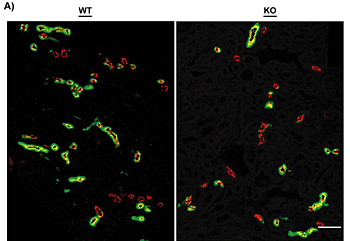Calcium Signaling
 Calcium signaling is a critical component of a huge range of cellular functions. Dynamic changes in calcium are essential for the physiological function of neurons, cardiovascular cells, skeletal muscle, immune cells, renal cells, mitochondria, and much more. From the coupling of membrane excitation to gene transcription and muscular contraction, to the control of neurotransmission and the determination of cell fate, a ubiquitous yet diverse array of calcium signals encode information that informs a plethora of intracellular events and are essential for health. In the Department of Physiology, we bring to bear the expertise of our world-renowned faculty as well as the next generation of postdoctoral fellows and graduate students to generate new insights into profoundly important questions regarding these cellular phenomena. Labs in the department investigate these questions using a wide array of complementary and cutting-edge techniques, including super resolution imaging, high-speed confocal microscopy, multiphoton imaging, in-vivo calcium recording approaches, patch-clamp electrophysiology and molecular techniques to advance our understanding of the physiology of calcium signaling in health and disease.
Calcium signaling is a critical component of a huge range of cellular functions. Dynamic changes in calcium are essential for the physiological function of neurons, cardiovascular cells, skeletal muscle, immune cells, renal cells, mitochondria, and much more. From the coupling of membrane excitation to gene transcription and muscular contraction, to the control of neurotransmission and the determination of cell fate, a ubiquitous yet diverse array of calcium signals encode information that informs a plethora of intracellular events and are essential for health. In the Department of Physiology, we bring to bear the expertise of our world-renowned faculty as well as the next generation of postdoctoral fellows and graduate students to generate new insights into profoundly important questions regarding these cellular phenomena. Labs in the department investigate these questions using a wide array of complementary and cutting-edge techniques, including super resolution imaging, high-speed confocal microscopy, multiphoton imaging, in-vivo calcium recording approaches, patch-clamp electrophysiology and molecular techniques to advance our understanding of the physiology of calcium signaling in health and disease.
Faculty & Research Interests
- COMING SOON
